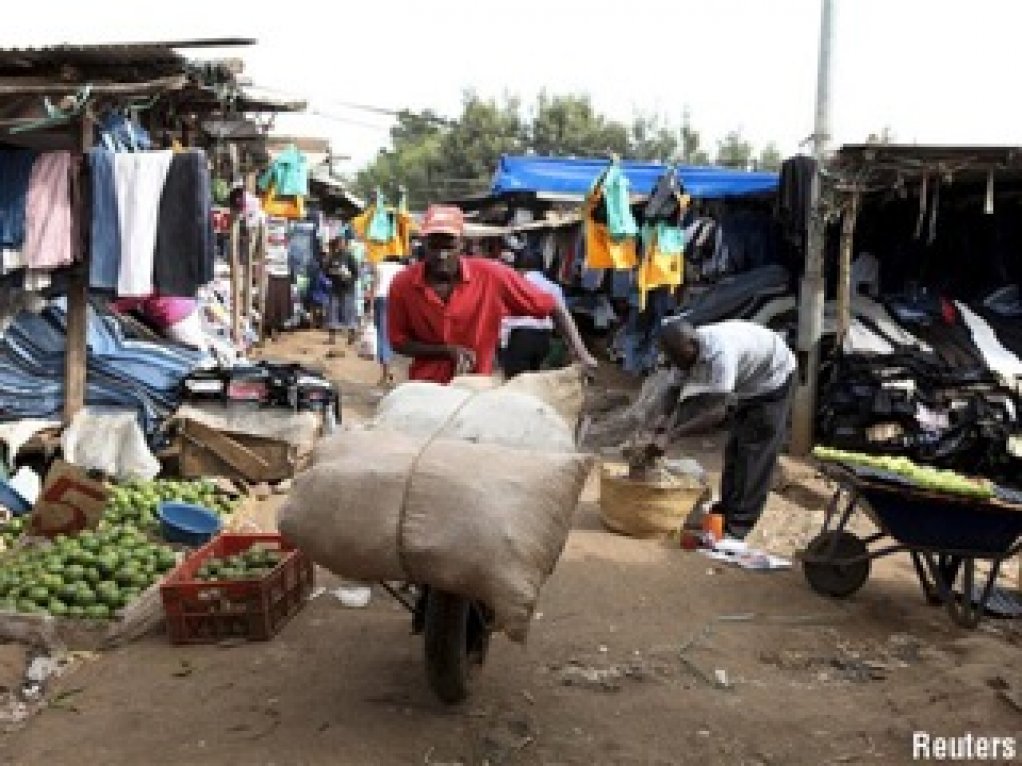/ MEDIA STATEMENT / The content on this page is not written by Polity.org.za, but is supplied by third parties. This content does not constitute news reporting by Polity.org.za.
Does inequality between rich and poor really matter? Yes, if barriers exist due to lack of equal opportunity and prevent the poor from developing the capability to maximise their potential. No, if people are free and able to make choices that will determine their ability to earn income and create wealth. The problem is not inequality, but poor education and a lack of aspiration, especially in young people and this is where government policy should focus its attention. The current obsession with attacking wealth and capital ignores the tremendous achievements made since the 1980s in reducing global poverty. Those who indulge in castigating capitalism don’t care about the poor or the causes of poverty. They are rather people who believe that to be wealthy is inherently wrong.
These were the messages of economist Vivian Atud and FMF executive director Leon Louw at a media briefing at the FMF on Tuesday, July 8, on whether the growing wealth inequality is indeed the threat to societies and nations that French economist Thomas Piketty claims in his recent best seller “Capital in the 21st Century”.
“There will always be inequality: it is the natural state. People are born with different attributes and abilities; luck and geography play their part,” Atud said. “What matters is to distinguish between segregation and choice and to understand that inequality is often an unintended economic outcome of government social policy.”
Growing inequality is a global phenomenon and has particular poignancy in South Africa where apartheid social engineering artificially created an unequal society and denied black people the opportunities available to whites.
According to the Gini co-efficient, the main measure of inequality, South Africa is the most unequal society in the world but, Atud said, the Gini co-efficient is severely limited in that it does not measure accumulated wealth or differential use of household income or the cause of inequality. Most importantly it does not reveal differences in opportunity or capability.
Atud said that high executive pay does not matter as long as everyone, born with a natural ability and potential, has the equal opportunity to rise to the giddy heights of million rand salaries. Most of us won’t but it is the role of government to create the environment where everyone who is capable, has the opportunity to advance through education and employment. “Governments should focus on where workers lack capacity because they have been denied opportunity,” she said.
Inequality is an outcome driven by the natural state or by government’s interference in society. According to Atud, government intervention to regulate the labour market has been a blessing and a curse. She said that affirmative action and BEE policies, while increasing the participation of blacks in the workplace, has been at the expense of individual initiative and ambition which drives a person to succeed on merit. She also said analysis shows that overall African participation in the labour force has decreased as an unintended consequence of affirmative action evidenced by the increased dependency on the state rather than self-realisation — from 3 million to 16 million.
“While these policies are born out of social or political ideologies, their actual consequences are a matter of economics.” She said that blacks were choosing career paths that would lead them into lower paid jobs while whites are choosing to train in more highly prized scarce skills which raise earning potential.
“Eighty per cent of university degree awards in 2010 in technology and industrial subjects went to white students while 80% of all awards in public administration went to blacks. Twelve per cent of all employed blacks are in the public sector compared to 3% of whites. Of the 1.3 million state employees, 78% are blacks.”
Leon Louw said that people who are obsessed with inequality don’t care about the poor and showed an obnoxious disregard of the causes of poverty. He said that the poor don’t care about the relative disparity between their income and the super rich, as evidenced by global adulation of highly paid sportsmen and celebrities. The poor care about their absolute living standards and the quality of their own daily lives. “People concerned about inequality are obsessed with wealth not poverty. They want to destroy the rich at the expense of the poor. They ignore humanity’s greatest achievement – the virtual elimination of poverty and that many of the world’s poor today have a far higher standard of living than the middle class of yesteryear”, said Louw. “They castigate free markets for enriching those who actually enrich the poor with capital, jobs, products and services”.
Of Thomas Piketty, Louw said his analysis has it that wealth and income is ‘distributed’ rather than earned, saved, invested or produced; that capital performs no function and that reducing it has no penalty; that he ignores the dynamic nature of capitalism which sees major companies come and go over time. “Picketty recycles debunked Marxist myths and has ‘cherry picked’ his definition of inequality while being part of the 1% himself”.
“Piketty’s view that capitalism has failed ignores the reality that free markets are where the poor migrate, have the ‘richest poor’ who enjoy living standards on a par with the middle class in poorer countries with less free economies; produce virtually all technology and innovation and provide the most welfare for their citizens,” said Louw.
Envy and frustration are behind the drive to blame the super rich for one’s own lack of achievement because “It must be someone’s fault”. Louw concluded by saying it is growth that will provide equality of opportunity for all citizens and not a tax on the wealthy.
EMAIL THIS ARTICLE SAVE THIS ARTICLE
To subscribe email subscriptions@creamermedia.co.za or click here
To advertise email advertising@creamermedia.co.za or click here











